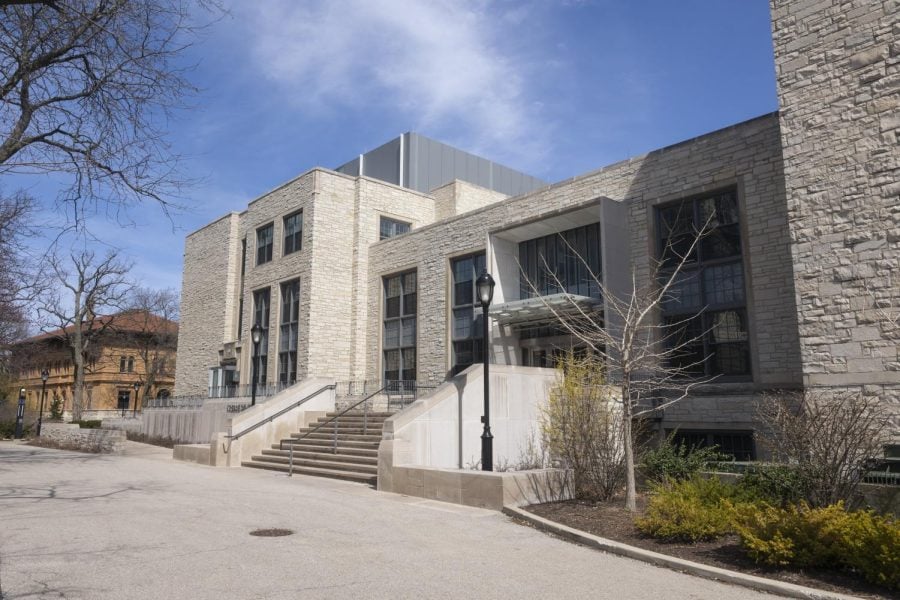University starts Death Studies research workshop to facilitate conversations about different perspectives on death
Daily file photo by Ava Mandoli
Kresge Hall, which houses the Alice Kaplan Institute for the Humanities. The Death Studies group is a Kaplan Research Workshop.
May 8, 2022
Content Warning: This story contains discussion of death.
Mel Keiser, the business coordinator of the art history and classics department at Northwestern, said she wanted to learn how to dig a grave so she could bury effigies for past versions of herself.
As a result, she started the Death Studies research workshop this past fall.
“Manual labor that utilizes the process of time is actually exceptionally useful, both in actually processing grief and in metaphorically mirroring or representing the process of grief,” Keiser said.
Gravedigging resembles the process of grieving because it requires people to come together, Keiser said. The multi-step procedure also requires time and proper safety protections, so she organized an event in the fall where professional gravediggers came to campus and taught interested individuals about the process.
At the event, she said she began discussing the possibility of creating a Death Studies research series with another professor. After more meetings with researchers who have studied death, professors and administrators from different departments and fields created a research workshop to discuss the subtopics and different approaches to studying death.
According to its website, the Death Studies series is funded to host events, like field trips, reading groups and discussions through 2023.
Kaiser said the Death Studies series has helped her understand her draw to death.
“I would not say I’m getting more comfortable with death and dying, but I would say I’m getting more comfortable with my discomfort of death and dying,” Keiser said.
Art theory and practice Prof. Jeanne Dunning, said there is value in facing themes pertaining to death.
In many cases in Western culture, Dunning said people hide death and distance themselves from it. Living through an ongoing pandemic has made death more present in everyone’s lives, she said.
“People I know who were much younger have died of COVID,” Dunning said. “I feel like it’s become more present for me just because I’m getting older, and so many people I know and people around me are getting older.”
The Death Studies research workshop allows participants to gain new perspectives on death. History Prof. Sean Hanretta said the workshop has hosted several meetings where participants present their research and discuss how it pertains to death.
Hanretta presented his work on funeral practices in West Africa, adding a global perspective to the group. He said it’s been interesting to work with professors across different disciplines, including the Feinberg School of Medicine and the art department.
“To actually sit down on a regular basis with surgeons and talk about death has been really eye-opening,” Hanretta said.
Hanretta added working with the art department has allowed him to see death from a more emotional lens, which is often lacking in academia.
Through the workshop, students and faculty can also participate in a reading group where they discuss written work and films. On Friday, the department will host author Matthew Goulish to discuss his article “The Brightest Thing in the World,” which is part of his book memorializing a close friend.
The workshop is also planning a possible field trip to the Field Museum to see flesh-eating beetles, Keiser said.
“We’re going to stand in that room for five minutes in silence to hear the sound of the flesh- eating beetles, the sort of idea of life eating death,” Keiser said.
Keiser said she believes the Death Studies research series could benefit many people and connect people from all walks of life.
“I do find this is the general consensus with a lot of these topics related to death and dying — that openness and directness is the best way to deal with it,” Keiser said.
Email: [email protected]
Related Stories:
— Anthropology Prof. Jessica Winegar named next director of Kaplan Institute for the Humanities
— Days after city’s 100th COVID-19 death, city holds light ceremony


